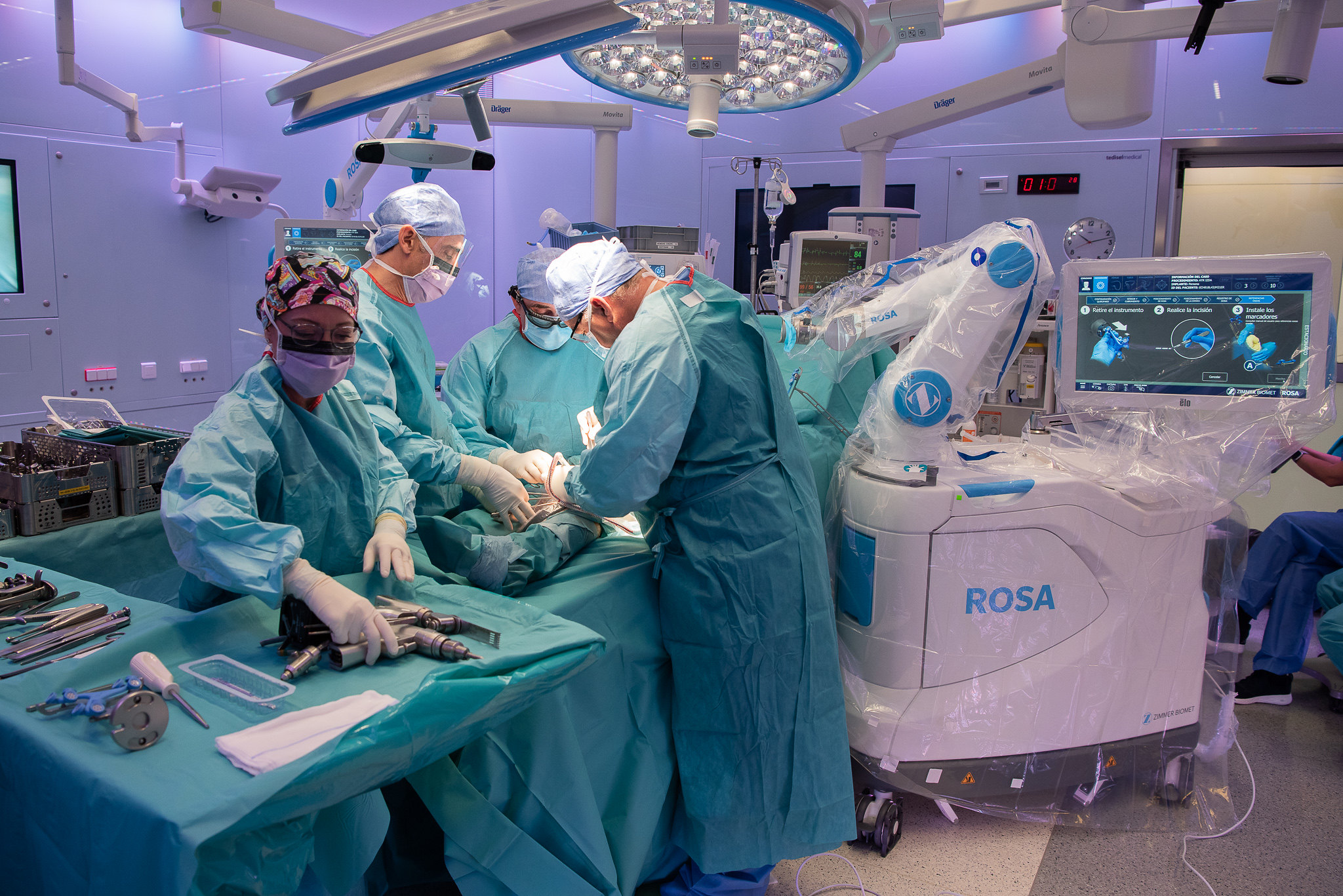Are you tired of seeing your favorite handbag losing its charm and looking worn out? Welcome to the ultimate handbag clinic, where your beloved bags get a magical makeover! Have you ever wondered, “How can I restore my luxury handbag to its original glory?” Well, you’re in the right place! The demand for professional handbag repair services has skyrocketed recently, especially with the rise of sustainable fashion and people wanting to extend the life of their accessories. Imagine giving your designer bag a second chance instead of buying a new one—sounds exciting, right? At our handbag clinic, we specializes in everything from leather restoration to handbag strap replacement that will make your purse look brand new again. Don’t let scratches, stains, or broken zippers ruin your style! Curious about how experts carefully clean and restore vintage bags or handle delicate materials like exotic leather? You’ll discover insider tips and top trends that are transforming the world of handbag care. So, why wait? Dive into the fascinating world of handbag repair and maintenance and unlock the secrets to keeping your accessories flawless for years to come! Ready to give your handbag the care it deserves? Let’s explore the best handbag clinic services near you!
Top 10 Handbag Clinic Secrets to Restore Your Luxury Bags Like a Pro
The Mysterious World of Handbag Clinic: Fix Your Bags or Just Waste Money?
Ok, so you have a favorite handbag, right? Maybe it’s been with you through thick and thin, or maybe it was a splurge you regret but can’t let go off. Whatever the case, handbag clinic services are popping up everywhere nowadays. But seriously, what the heck is a handbag clinic anyway? And should you even bother taking your bag there? Let me try to break it down, though I’m not really sure why this matters, but people seem obsessed with it.
What is a Handbag Clinic? (Spoiler: It’s Not a Doctor’s Office)
In simplest terms, a handbag clinic is a place where your beloved handbag get fixed, cleaned, and sometimes even restored to its former glory. These clinics specialize in repairing zippers, fixing stitching, cleaning stains, and sometimes even giving your bag a new life—like a facelift but for leather or fabric.
| Services Offered at a Typical Handbag Clinic | What It Means for You |
|---|---|
| Zipper Repair | No more stuck zippers or lost contents |
| Stitching Fix | Your handbag won’t fall apart in the middle of a date |
| Leather Cleaning and Conditioning | Makes your bag look less like a sad old turtle |
| Hardware Polishing | Shine bright like a diamond, or at least your clasp |
| Color Restoration | Because faded colors are not a good look |
Maybe it’s just me, but I feel like some of these fixes are more about making you feel better about your splurge than actually saving the bag. But hey, if you wanna throw money at it, who am I to stop you?
Why People Even Use a Handbag Clinic?
Well, if your bag costs more than your monthly rent (and who doesn’t?), you’re probably thinking twice before tossing it out. A handbag clinic can extend the life of that pricey purse, and honestly, some bags are like fine wine, they get better with age if you care for them right.
- You spill coffee on it? Handbag clinic.
- You ripped the strap? Handbag clinic.
- The leather looks dry and cracked? You guessed it—handbag clinic.
Not everyone gets this, but some folks treat their bags like a lifelong investment, which feels a little over the top but hey, that’s the culture nowadays.
DIY vs Handbag Clinic: The Eternal Struggle
Look, you could try fixing your handbag at home. There’s tons of YouTube tutorials and Pinterest hacks, but most of them look like a hot mess waiting to happen. I tried once, ended up gluing my fingers together and making the zipper worse. So, handbag clinic it is.
| DIY Attempt | Handbag Clinic |
|---|---|
| Risk of making the problem worse | Professionally trained experts handle it |
| Cheap or free (except your dignity) | Costs money, but usually worth it |
| Takes a lot of time and patience | Faster turnaround |
| Questionable results | Usually guaranteed satisfaction |
Not sure why, but people still keep trying DIY. Maybe it’s the thrill of risking it all? Or just saving some bucks, who knows.
How Much Does Handbag Clinic Cost? (Spoiler: It Varies)
Prices can range from something like $20 for simple zipper fixes to hundreds for full restoration. Yeah, it’s not cheap, but if you really love your bag, you might consider it a good investment. Here’s a rough table of what you could expect depending on your handbag problem:
| Repair Type | Average Cost (USD) | Time to Repair |
|---|---|---|
| Zipper Replacement | $25 – $75 | 1-3 days |
| Stitching Repair | $30 – $60 | 2-4 days |
| Leather Conditioning | $40 – $100 | 1-2 days |
| Full Restoration | $150 – $500+ | 1-2 weeks |
Not really sure if it’s worth it for all bags, but if you drop a grand on a designer one, you might wanna think twice before chucking it out.
How to Find the Best Handbag Clinic?
Finding a handbag clinic that won’t mess up your precious accessory is a bit like dating—lots of options, but who to trust? Here are some tips, but take them with grain of salt since I’m not an expert:
- Look for Reviews: People love to rant or rave online, so check Yelp or Google.
- Ask About Experience: Not all clinics work on luxury brands, so make sure they got some creds.
- **Check Turn
How Handbag Clinics Bring Your Designer Bags Back to Life: Insider Tips
So, you heard about a handbag clinic? Yeah, it’s kinda like a spa day but for your purse. I mean, who would have thought that handbags need a check-up too? Not really sure why this matters, but apparently, these clinics are becoming a thing, and people are loving it. Maybe it’s just me, but I feel like taking care of your handbag should be as important as taking care of your own shoes. Because, let’s be honest, a busted handbag can really ruin your whole vibe.
Anyways, a handbag clinic near me is basically a service where experts fix, clean, and restore your bags so they look almost brand new again. You can bring your old, tired-looking purse, and they do magic on it – patching up holes, fixing zippers, replacing handles, you name it. It’s like they have a PhD in handbag-ology or something. Okay, maybe not a PhD, but they do know their stuff, for sure.
What Does a Handbag Clinic Actually Do?
Here’s a little breakdown in a table, because who doesn’t love a good table to make stuff easier?
| Service Offered | Description | Estimated Time | Price Range |
|---|---|---|---|
| Cleaning & Conditioning | Deep clean your bag inside out and condition leather | 1-2 hours | $40 – $100 |
| Zipper & Hardware Repair | Fix broken zippers, replace buckles, snaps, etc. | 2-4 hours | $50 – $150 |
| Handle & Strap Replacement | Swap out worn handles or straps | 3-6 hours | $80 – $200 |
| Color Restoration | Touch up faded or scratched leather | 2-3 hours | $60 – $120 |
| Custom Alterations | Change bag shape, add pockets, or other modifications | Varies | $100+ |
So, if your purse is looking like it’s been through a war zone, a handbag clinic service can totally save the day. It’s kinda like taking your car to the mechanic but way more stylish, right?
Why Should You Care About a Handbag Clinic?
Maybe you think, “Eh, I just buy a new handbag when this one looks bad.” But hold your horses, because not everyone wanna spend a fortune on a new bag all the time. Plus, some bags are just sentimental. Like, I got this old leather tote from my grandma, and it’s falling apart, but throwing it away? No way! That’s where a handbag repair clinic comes in handy (pun intended).
Also, if you’re like me, kinda lazy with cleaning your stuff, these clinics help keep everything fresh without you having to lift a finger. Not that I’m saying I’m lazy or anything… but you know what I mean.
Common Issues Handbag Clinics Fix (With Some Real Talk)
- Broken zippers: Oh, the struggle is real. Zippers always seem to break at the worst time, like when you’re late for something important.
- Scratched leather: Because apparently, my bag wants to go through a fight club.
- Stained lining: Ever spilled makeup or coffee inside your bag? Yeah, me too.
- Fading color: Sun, rain, and general wear make your bag look like it’s seen better days.
- Broken handles or straps: Carrying a bag with a broken strap is like carrying an anchor.
How to Choose the Right Handbag Clinic?
I guess, you wanna find a clinic that knows what they’re doing. Here’s a quick checklist for picking a good handbag clinic near me (or wherever you are):
- Look for reviews or testimonials — you wanna see people raving, not ranting.
- Check if they work with your brand or material (some bags are super delicate).
- Ask about the warranty or guarantee — because, what if they mess it up?
- Compare prices but don’t always go for the cheapest, sometimes you get what you pay for.
- See if they offer pick-up or delivery services — lazy people’s dream, honestly.
Fun Fact: The Rise of Luxury Handbag Clinics
Apparently, the luxury handbag market is booming, and with it, the demand for specialist handbag restoration clinics is skyrocketing. Celebrities and fashionistas don’t just buy new bags, they keep their old ones looking fresh forever. It’s kinda like the “anti-fast fashion” movement but for accessories. Maybe it’s just me, but I think that’s pretty cool.
Quick Guide: DIY vs. Professional Handbag Clinic
| Aspect | DIY Fixes | Professional Handbag Clinic |
Step-by-Step Guide: Restoring Vintage Luxury Handbags at a Handbag Clinic
The Wild World of Handbag Clinic: Why You Might Need One (Or Not)
Okay, so we’re talking about handbag clinic today — yeah, that’s right, a place where your beloved purse gets a second chance at life. Now, I’m not really sure why this matters to everyone, but if you’re someone who treats their handbag like a prized pet, then maybe it does? These clinics are popping up more often than you’d expect, and honestly, they’re kinda lifesavers for people who don’t want to buy a new bag every season.
What Even Is a Handbag Clinic?
To put in simple terms, a handbag clinic is like a doctor’s office for your bags. They fix scratches, re-stitch loose threads, replace zippers, and sometimes even restore the leather to look brand new again. Sounds fancy? It kinda is, but also not rocket science.
| Service Offered | What It Entails | Average Cost (USD) |
|---|---|---|
| Leather Cleaning | Deep cleaning and conditioning | $50 – $100 |
| Zipper Replacement | Fix or replace broken zippers | $30 – $70 |
| Stitching Repair | Fix loose or broken stitches | $20 – $50 |
| Color Restoration | Touch up faded or scratched areas | $70 – $150 |
Not sure why the prices vary so much, maybe it depends on how fancy your bag is?
Why You Might Need a Handbag Clinic (Or Not)
So, here’s the deal. Maybe it’s just me, but I feel like most people don’t think about their handbag until it’s falling apart. Suddenly, you see your favorite bag with a torn strap, or the leather looks more like a dried-out fruit than a luxury item. That’s when handbag clinic near me becomes a lifesaver phrase you google at 2 am.
But is it really worth it? I mean, you can probably buy a new bag cheaper than fixing the old one — well, unless you have a designer bag that costs more than your rent. For those, a handbag clinic is like a knight in shining armor. If you got a vintage purse handed down from grandma or something super rare, you don’t just toss it away. No way, you fix it.
Common Problems Fixed at a Handbag Clinic
- Scratched leather: Leather scratches are the bane of every handbag owner life.
- Broken zippers: Because zippers have a mysterious talent of breaking at the worst times.
- Loose threads: Threads that unravel like your whole bag is falling apart.
- Stains: Coffee, wine, lipstick — you name it, handbag clinics probably can get rid of it.
- Faded color: Sun and time are ruthless, and your bag’s color fades away like your enthusiasm for Monday mornings.
How to Choose the Right Handbag Clinic
Finding a good handbag clinic is kinda like dating — you gotta check for trustworthiness, skills, and sometimes reviews because nobody wants their $2000 purse turned into a $5 garage sale item.
Here’s a quick checklist to help:
| Factor | What To Look For | Why It Matters |
|---|---|---|
| Experience | Years in business | More years = more skills (usually) |
| Reviews | Customer feedback | Real stories from real people |
| Services Offered | Range of repairs | More services = one-stop shop |
| Pricing | Transparent and fair prices | Avoid surprise bills |
| Turnaround Time | How long it takes | Because waiting forever sucks |
DIY vs Handbag Clinic: A Battle Royale
Honestly, some people try to fix their bag themselves, armed with glue and hope. Spoiler alert: that usually ends in disaster. If you try to fix a zipper with superglue, you might end up with a permanent stuck zipper. Not fun.
Maybe it’s just me, but I say leave it to the pros. They have the tools, knowledge, and probably some secret handshake with the handbag gods.
Real Talk: Is Handbag Clinic Worth It?
Let’s be brutally honest — sometimes, no matter how much you pay, your bag just ain’t coming back to life. Especially if it’s been through hell and back (think: spilled coffee, rain storms, dog teeth marks…). But if you love that bag, and it means something to you, a handbag repair clinic can save you some serious bucks and heartbreak.
Quick Tips for Handbag Maintenance (Because Prevention is Better Than Cure)
- Don’t overload your bag like it’s a moving box.
- Keep it away from direct sunlight for long hours.
- Clean it regularly with appropriate products.
- Store it in a dust
Why Choose a Professional Handbag Clinic for Your High-End Bag Restoration?
So, you ever heard about a handbag clinic? No, it’s not some weird place where bags go to complain about their life or something. It’s actually a real thing where experts fix your beloved handbags. Sounds fancy, right? But honestly, it’s more than just fixing zippers or cleaning – it’s like a spa day for your bags, if bags could enjoy spa days. Maybe it’s just me, but I feel like people overlook how much a good handbag clinic near me can save your wallet from crying.
What’s a Handbag Clinic, Anyway?
Alright, here’s the deal: a handbag clinic service is basically a repair and restoration spot for your handbags, whether it’s luxury leather or just your everyday tote. They do everything from fixing straps, replacing locks, to even recoloring or deep cleaning your bag’s insides. Not really sure why this matters, but apparently, the more you take care of your bag the longer it lasts—who knew, right?
| Service Offered | What They Do | Typical Cost Range |
|---|---|---|
| Strap Repair | Fix broken or worn-out straps | $20 – $50 |
| Leather Restoration | Recoloring, patching scratches | $50 – $150 |
| Zipper Replacement | Replace broken or stuck zippers | $30 – $70 |
| Deep Cleaning | Remove stains, odors, and dirt | $40 – $100 |
| Hardware Replacement | Fix or replace locks, clasps, buckles | $40 – $120 |
If you think about it, the cost might sound a bit high for some fixes. But hey, if you’re owning a Chanel or Louis Vuitton, you don’t just throw it away cause a strap broke, right? That bag probably cost more than my rent, so a little fix-up sounds reasonable to me.
Why Should You Even Care About a Handbag Clinic?
Okay, let’s get real for a moment. Bags get messy. They get scratched, stained, or sometimes the zipper just gives up on life. And you might be thinking, “Why not just buy a new one?” Well, buying a new handbag every time something minor happens? That’s a road to bankruptcy, my friend.
- Saves Money: Fixing a bag is usually cheaper than buying a new designer one.
- Eco-Friendly: Reduces waste, cause let’s face it, dumping bags ain’t great for the planet.
- Sentimental Value: Some bags got stories, memories, or maybe your grandma gave it to you.
So yeah, a handbag restoration clinic is kinda like a hero for your bags. Not all heroes wear capes, sometimes they wear leather aprons and carry little tools.
How to Choose the Right Handbag Clinic?
Picking the right clinic isn’t just about googling “handbag clinic near me” and picking the first one that pops up. There’s a bit more to it, like checking reviews, asking about their expertise, and sometimes even if they specialize in your brand. Because, let’s be honest, a place that fixes Coach bags might not be up to handle your Hermès.
Here’s a quick checklist when you looking for a handbag clinic service:
- Experience: How long they been fixing bags? A newbie might mess it up.
- Reviews: What do other customers say? Trust me, Yelp reviews tell a lot.
- Specialization: Do they handle luxury or just regular bags?
- Pricing: Is it transparent or are they charging hidden fees?
- Turnaround Time: Cause you don’t wanna wait a month for your bag back.
Fun Facts You Didn’t Know About Handbag Clinics
You might think handbag clinics just slap on a patch and call it a day. Nope. These places sometimes do some crazy stuff. Like:
- Using special tools to restore leather texture.
- Customizing your bag hardware with gold or silver plating.
- Offering waterproofing treatments for rainy days.
| Weird But True Handbag Clinic Facts | Explanation |
|---|---|
| Some clinics offer “deodorizing” services | To remove weird smells, like gym bag level odors |
| Leather color can be matched perfectly | They use color matching tech, so no mismatched parts |
| They can fix vintage bags from the 1950s | Yup, a bag older than your parents can be revived! |
Honestly, if you got a vintage bag, a handbag clinic is like a time machine for your purse.
Quick Tips for Taking Care of Your Handbag (Because Prevention is Better Than Cure)
If you don’t wanna be running to a handbag clinic near me every other month, here
The Ultimate Handbag Clinic Restoration Checklist for Luxury Leather Bags
Alright, let’s dive into the weird and wonderful world of handbag clinic — yeah, you read that right. If you ever wondered what happens when your favorite bag suddenly looks like it’s been through a hurricane (or just a really bad Monday), then buckle up. This article gonna explore everything you need to know about getting your purse back to looking like a million bucks, or at least not like a sad potato sack.
What is a Handbag Clinic, Exactly?
So, a handbag clinic is basically a place (or service) where your handbag get fixed, cleaned, and sometimes even pampered like it’s some high-maintenance diva. Not really sure why this matters, but people spends a lot of money on these bags, and when they get damaged, you don’t just throw em away like old socks. No way! You bring it to these experts who know their stuff about leather, zippers, and all the tiny bits that make a bag, well, a bag.
| Common Services at a Handbag Clinic | Description |
|---|---|
| Cleaning & Conditioning | Removes dirt, oils, and keeps leather soft |
| Repairs on Straps & Handles | Fixes broken or frayed handles |
| Zipper Replacement | Because a stuck zipper is worst! |
| Color Restoration | Fades or scratches get a new life |
| Hardware Repair | Fixes buckles, clasps, and studs |
Honestly, if your handbag looks like it survived a bear attack, this might be your go-to place.
Why Would You Even Need One?
Maybe it’s just me, but I feel like handbags get no love sometimes. You carry them everywhere — rain, mud, coffee spills (whoops), and they just take it all. Some people treat their bags like sacred objects, but others? Not so much. So, a handbag clinic near me becomes a lifesaver when your bag looks more like a crumpled mess than a fashion statement.
Here’s a quick list of why handbag clinics are helpful:
- You dropped your bag and the strap snapped in half (ouch).
- Your zipper is stuck and refuses to budge.
- Your leather is cracked and itchy — yeah, leather can get itchy? Weird.
- Color faded because you left it in the sun like a forgetful plant mom.
- Hardware pieces got lost or broken (those tiny studs love to run away).
What to Expect When You Visit a Handbag Clinic
Okay, so you walked into the clinic, and now what? It’s not like you just hand over your bag and hope for magic. They usually do some kind of inspection first, checking every nook and cranny for damage.
| Step | What Happens | Why It Matters |
|---|---|---|
| Inspection | They look over your bag carefully | To identify issues and estimate cost |
| Estimate | They give you price and time frame | So you don’t freak out later |
| Repair Process | Experts work their magic | This can take days or weeks, FYI |
| Final Check | They inspect the repaired bag | To make sure nothing’s missed |
| Pickup | You get your bag back | And hopefully, it’s like new! |
Not gonna lie, sometimes these repairs can be pricey — but hey, better than buying a new designer bag, right?
Tips For Maintaining Your Bag Post-Clinic
Once your handbag is all fixed up, you probably wanna keep it that way. Here’s some quick tips that might save you from another clinic visit sooner than you want:
- Store Properly: Don’t just toss your bag in a corner. Use dust bags or pillowcases to keep dust out.
- Avoid Overstuffing: Your bag isn’t a suitcase. Overfilling can stretch and damage it.
- Clean Regularly: Use the right cleaners — not kitchen soap or anything cray cray.
- Handle with Care: Yeah, duh. But seriously, avoid dragging or hanging bags from just one strap.
- Rotate Bags: Don’t wear the same bag every single day. Give it a break!
Quick FAQ About Handbag Clinic
| Question | Answer |
|---|---|
| Can all bags be repaired? | Mostly yes, but some super damaged bags might be lost causes. |
| How long does a repair take? | Usually from 3 days to 2 weeks, depending on severity. |
| Is it expensive? | Depends on what needs fixing; minor fixes are cheap but big repairs cost more. |
| Do they fix all brands? | Yup, from budget to designer brands. |
| Can I do it myself? | Unless you’re a pro, probably |
Handbag Clinic vs DIY Repairs: Which Method Perfectly Restores Your Designer Bag?
Handbag Clinic: Why Your Favorite Bag Needs More Than Just a Dust Off
So, you got yourself a fancy bag, maybe a designer one or just some thrift store find that you swear is vintage, and then boom — it starts looking like it been through a war zone. Well, that’s where a handbag clinic come in handy (pun intended). But, hey, what the heck is a handbag clinic anyway? Not really sure why this matters, but apparently, it’s like a spa day for your purse, where experts fix all the little boo-boos and make it look almost new again. Sounds fancy, right? Let’s dive into the world of handbag clinic services and why you might wanna consider one before tossing out your favorite tote.
What is a Handbag Clinic? (And Why Care?)
At it’s core, a handbag clinic is a place — or sometimes an event — where professionals diagnose and repair handbags. They fix everything from broken zippers, ripped linings, to stains that just won’t quit. Maybe you think, “Eh, it’s just a bag, why bother?” But maybe it’s just me, but I feel like a handbag is kinda like an extension of your personality. When it’s looking bad, well, it kinda says something about you, right? Or at least that’s an excuse I tell myself to justify paying for repairs.
Here’s a quick list of what a handbag clinic usually covers:
- Cleaning & conditioning leather
- Replacing broken hardware (zippers, clasps)
- Stitching torn linings or handles
- Color restoration
- Waterproofing treatments
Table: Common Handbag Problems and Their Fixes
| Problem | Typical Fix | Estimated Cost Range |
|---|---|---|
| Broken zipper | Replace zipper | $40 – $100 |
| Scratched leather | Leather conditioning & buffing | $30 – $80 |
| Torn lining | Sew new lining | $50 – $150 |
| Stained fabric | Deep cleaning | $30 – $90 |
| Hardware tarnishing | Polish or replace hardware | $20 – $100 |
Not gonna lie, some of these prices might make you choke a bit, but hey, it’s cheaper than buying a new bag every season if you’re the type who can’t stop switching purses.
Why DIY Repairs Aren’t Always The Best Idea
Look, I get it. You wanna save some cash and try to fix your bag yourself. Maybe YouTube tutorials looked easy enough. But let me tell you, handbag materials can be tricky. Using the wrong glue, or stitching weirdly can wreck the bag worse than before. And honestly, trying to fix a designer bag without professional tools — well, it’s like trying to perform surgery with a butter knife. Not recommended.
Handbag clinic near me searches are booming for a reason. People want experts who actually know what they doing. Plus, they got the right tools and products that you probably don’t have lying around your house.
Pros and Cons of Going to a Handbag Clinic
| Pros | Cons |
|---|---|
| Professional results | Can be expensive |
| Saves your favorite bag | May take several days or weeks |
| Increases handbag lifespan | Not all damages are fixable |
| Prevents minor problems from worsening | Some clinics have waiting lists |
Honestly, the cons are mostly about money and time. But then again, if your bag is a prized possession, those cons don’t really matter that much, do they?
How to Choose the Right Handbag Clinic
Not all handbag clinics are created equal. Some specialize in luxury brands, others focus on everyday bags. So, before handing over your beloved bag, ask yourself these questions:
- Does the clinic have good reviews or testimonials?
- Are the technicians trained or certified?
- Do they give a clear quote before starting?
- How long will the repair take?
- Do they offer guarantees on their work?
Fun Fact: Some Clinics Offer Mobile Services
Yep, you read that right. Some handbag clinic mobile repair services come right to your doorstep. Imagine that — a repair person showing up at your house with a kit full of tools to fix your bag while you sip coffee. Not really sure why this matters, but it sounds pretty cool.
Quick Tips to Extend Your Handbag’s Life (Before Clinic Time)
- Store bags in dust bags or pillowcases, not just throw ‘em in the closet.
- Avoid overloading your bag — handles aren’t magic.
- Wipe down leather parts with a damp cloth regularly.
- Keep bags away from direct sunlight (unless you want them to fade).
- Use handbag organizers to prevent
Secret Techniques Used by Handbag Clinics to Revive Faded and Damaged Bags
So, let’s talk about handbag clinic — you know, those magical places where your battered, tired purses get a second chance at life? I mean, who hasn’t got a handbag thats seen better days but just can’t bring themselves to toss it out? Yeah, me too. Anyway, these clinics aren’t just some fancy repair spots; they’re kinda like the spa days for your bags, but instead of cucumber slices, they use stitches and leather conditioners.
What is a Handbag Clinic Anyway?
Not really sure why this matters, but a handbag clinic is basically a service center specializes in fixing, cleaning, and restoring handbags. They don’t only patch holes or replace zippers, they also do deep cleans, color restorations, and sometimes even structural repairs. It’s like a hospital for your favorite leather buddies. But, unlike your usual dry cleaner, these folks know their stuff when it comes to different materials — leather, canvas, even those weird synthetic fabrics that pretend to be leather but ain’t.
| Service Offered | What They Do | Approximate Cost |
|---|---|---|
| Zipper Replacement | Swap out broken or jammed zippers | $30 – $70 |
| Leather Conditioning | Clean and moisturize leather to stop cracking | $40 – $90 |
| Color Restoration | Fix faded or scratched colors | $50 – $120 |
| Structural Repairs | Fix broken handles, sagging bases, etc. | $60 – $200+ |
| Hardware Replacement | Replace broken buckles, clasps, or studs | $20 – $80 |
Why Would You Even Need One?
Maybe it’s just me, but I feel like people often forget how much money these bags cost. So, instead of ditching them when a strap breaks or some stains show up, a handbag clinic helps you save some bucks in the long run. Plus, some bags got sentimental value — like that old tote from your college days or a gift from your grandma. These clinics make sure your precious belongings don’t become landfill fodder.
But here’s the catch, not all clinics are created equal. Some might do a half-hearted job or use cheap materials, so you gotta do your homework. Look for places that have reviews or even better, recommendations from friends who’ve actually used their services.
How Does the Process Usually Go Down?
I once took my leather satchel to one of these clinics and here was the general flow — though it might vary depending on the place:
- Initial Assessment: They check out your bag, note down all the issues.
- Estimate: You get a price quote, sometimes with options (like cheap fix vs premium restoration).
- Repair & Cleaning: This could take anywhere from a couple days to a few weeks.
- Pick-Up & Inspection: You get to see your bag again and decide if you’re happy with the work.
Things to Consider Before Handing Over Your Bag
- How old is your handbag? Older bags might need more delicate care, and some clinics might not want to touch them.
- What kinda material is it made from? Leather vs fabric can mean very different treatments.
- Do you want a quick fix or a full restoration? The price and time will vary a lot.
- Check if they offer any guarantees or warranties on their work. Because obviously, you don’t want to pay and then find out the zipper breaks next week.
A Quick List of Pros and Cons
| Pros | Cons |
|---|---|
| Extends life of your handbag | Can be expensive depending on repairs |
| Environmentally friendly | Some repairs may not look perfect |
| Saves money in the long run | Not all clinics are trustworthy |
| Keeps sentimental items alive | Time-consuming process sometimes |
Some Insider Tips or Whatever
- Always ask for before & after photos of their previous work — like, proof is in the pudding, right?
- If your bag is a designer brand, check if the clinic is authorized or recommended by the brand itself.
- Don’t expect miracles on super old or heavily damaged bags. Sometimes the damage is just too far gone.
- If you’re unsure about the cost, get multiple quotes because prices can vary wildly.
Final Thoughts — Is It Worth It?
Honestly, if you got a handbag you kinda love but it looks like it survived a hurricane, a handbag clinic might be your best bet. Sure, you could just buy a new one, but where’s the fun or the story in that? Plus, it feels kinda good to rescue something rather than throw it away. Not to mention, you’ll probably get a good conversation starter — “Oh this old thing? It’s been to a handbag
How to Spot a Trusted Handbag Clinic for Authentic Luxury Bag Restoration
The Quirky World of Handbag Clinic: Why You Might Need One (Or Not)
Alright, so you probably heard the term handbag clinic thrown around lately, but what is it exactly? I mean, isn’t a handbag just a handbag? You carry your stuff in it, right? Well, turns out, some folks treat their handbags like precious artifacts that need some serious TLC. And that’s where the mysterious handbag clinic near me comes into play.
What is a Handbag Clinic, Anyway?
In simple words, a handbag clinic service is a place (or sometimes just a professional) that fixes and restores your beloved handbags. Think of it like a hospital for your bags, but instead of a stethoscope, they use special leather conditioners and tools. Maybe it sounds a bit over the top, but trust me, if you’ve got an expensive or vintage bag, it can be a lifesaver.
Not really sure why this matters, but some people even say their handbags have a personality. Yeah, I don’t get it either, but hey, to each their own.
Here’s a quick table to show what kind of repairs you might find at a typical handbag repair clinic:
| Repair Type | What They Do | Price Range (USD) |
|---|---|---|
| Strap Replacement | Fix or replace broken straps | $30 – $100 |
| Leather Cleaning | Deep cleaning and conditioning of leather | $40 – $120 |
| Zipper Repair | Fix broken or stuck zippers | $20 – $70 |
| Color Restoration | Restore faded or chipped color on leather | $50 – $150 |
| Stitching Repair | Fix loose or torn stitches | $25 – $80 |
I mean, who knew there was such a wide range of services? I always thought bags just wear out and you toss them. But no, they actually get treated better than my shoes.
Why You Might Want To Visit a Handbag Clinic
So, maybe your handbag is just fine, but if you’re like me, you’ve got that one bag that’s been through thick and thin. And by that, I mean it’s scratched, stained, and the zipper’s on its last leg. Here’s a list of reasons why people go to a handbag restoration clinic:
- They want to preserve a sentimental bag (a gift from grandma or something).
- Their designer bag got damaged and they don’t want to buy a new one.
- They want to increase the resale value of their handbag.
- Just because they love their bags way too much (yes, I’m judging a little).
Honestly, if you ask me, some folks spend more on fixing bags than on new ones. But hey, maybe it’s just me, but I feel like repairing something old gives it more character.
How Does a Handbag Clinic Work? (Spoiler: Not Magic)
I was curious, so I dug a little on how these clinics actually operate. Turns out, it’s a mix of skilled craftsmanship and fancy chemical treatments. Here’s the typical process they follow:
- Assessment – They check the bag for damages and decide what needs fixing.
- Cleaning – The bag gets a thorough cleaning to remove dirt and oils.
- Repair – Stitches, zippers, straps, you name it, they fix it.
- Conditioning – Applying special lotions to the leather to keep it soft.
- Color Touch-Up – If your bag faded or got scuffed, they restore the color.
- Final Inspection – Making sure everything looks and works as it should.
I guess it’s kind of like a spa day for your handbag, except with more leather and less cucumber water.
Pros and Cons of Using a Handbag Clinic
Like anything, there’s ups and downs to taking your bag to these clinics. I made a small list because who doesn’t love lists?
| Pros | Cons |
|---|---|
| Extends the life of your handbag | Can be expensive |
| Maintains handbag’s aesthetic value | Not every damage is fully fixable |
| Increases resale value | Takes time (sometimes weeks) |
| Saves money compared to buying new | Risk of poor workmanship |
Not saying you must run out and get your bag repaired immediately, but if you got a prized possession, it makes sense to keep it in shape.
Finding the Best Handbag Clinic Near You
If you’re thinking “Okay, where do I find a handbag clinic near me?”, the internet is your best friend. Yelp, Google reviews, and even Instagram can show you some neat places with good reputations. Word of mouth
Cost-Effective Luxury Bag Restoration: Handbag Clinic Services That Save Your Wallet
If you ever find yourself staring at your favorite purse thinking, “Hey, why it look like it just survived a tornado?”, then welcome to the wild world of the handbag clinic. Not really sure why this matters, but apparently, people that loves their handbags don’t just throw them away like yesterday’s leftovers. Nope, they take them to these special places called handbag repair centers or clinics where magic happens. Or at least, that’s the idea.
What is a Handbag Clinic? (And Why Should You Care?)
In simple words, a handbag clinic is like a hospital for your bags. They fixes zippers, patch holes, replace straps, and even do a full makeover on your tired old tote. Maybe it’s just me, but I feel like this is something that should’ve been a thing ages ago. I mean, why buy a new bag when you can get your old one looking like fresh off the runway again? These clinics are specialized in handbag restoration services that extend the life of your expensive accessories, saving you some bucks, and the environment too (go eco-friendly, yay!).
But hold on, not all clinics are created equal. Some only do minor fixes, others go full-on with leather conditioning, color restoration, and even waterproofing. So before you hand over your precious, you might want to check what kinda service they offer.
| Service Type | What They Fix/Do | Typical Cost Range |
|---|---|---|
| Minor Repairs | Zippers, loose threads, small tears | $20 – $50 |
| Leather Restoration | Scratches, color fading, stains | $50 – $150 |
| Structural Repairs | Broken straps, frame damage | $75 – $200 |
| Full Refurbishment | Complete cleaning, conditioning, repairs | $150 – $300 |
Why People Swear By Handbag Clinics
Honestly, I thought this was just a fancy way to spend money until I saw my friend’s bag after a visit to a handbag clinic near me. It looked brand new! She told me it’s like a spa day for bags, and honestly, who doesn’t want that?
Here’s the deal: your handbag goes through a lot — weather, spills, rubbing against god knows what in your purse, and even the weight of your life (or groceries). Over time, these abuse shows up as cracks, broken hardware, or worse, a zipper that refuses to zip. Instead of chucking it and splurging on a new designer piece, getting it fixed is both wallet and planet friendly.
How to Choose the Right Handbag Clinic?
Choosing a good handbag repair shop is a bit like dating. You gotta feel that vibe, check the reviews, and maybe ask a few questions. Here’s a quick checklist that might save you from handbag heartbreak:
- Do they specialize in your bag’s brand? (Not all clinics do Gucci, for example.)
- What’s the turnaround time? You don’t want your bag missing for months.
- Can they provide before-and-after photos of their work? Proof is in the pudding.
- What are the pricing details? Hidden fees are the worst.
- Are they insured? Because accidents happen, and you want your bag protected.
Common Services Offered at a Handbag Clinic
Let me break down what you can expect at most handbag clinics. This might help you decide if you’re ready to go all-in or just want a quick fix.
Zipper Repair or Replacement
Zippers are the bane of every handbag’s existence. Clinics usually replace broken or stuck zippers with matching parts.Strap Fixes and Replacements
Whether your strap snapped or just looks worn out, they got you covered.Leather Cleaning and Conditioning
Your bag’s leather can dry out or get dirty, and they use special products to make it look supple and clean again.Hardware Polishing or Replacement
That shiny gold or silver hardware can get tarnished; clinics can polish or swap it out.Color Restoration
If your bag’s color faded or got stained, some clinics can do touch-ups or even full recoloring.
A Quick Pro & Cons Table for Using a Handbag Clinic
| Pros | Cons |
|---|---|
| Saves money over buying new bags | Can be pricey for heavy repairs |
| Extends lifespan of bags | Not all damage can be fixed |
| Environmentally friendly option | May take time to complete |
| Makes your bag look like new | Quality varies between clinics |
Final Thoughts (Or Whatever, I’m Just Saying)
If you got a handbag that’s
Can a Handbag Clinic Fix Scratches and Stains on Your Designer Bag? Find Out!
If you ever find yourself staring at your beloved purse, thinking “oh no, not again,” then maybe its time you heard about the handbag clinic near me. I mean, who doesn’t want their expensive bag to look brand new, right? But, honestly, I never really understood why people get so obsessed with fixing tiny scratches or a loose zipper on their bags. Maybe it’s just me, but I feel like some folks treat their handbags like they are part of the family or something.
Anyway, a handbag clinic service is basically a place where pros fix your bag’s problems. From scratches, stains, broken straps to hardware issues, they supposedly do it all. Sounds fancy, but don’t expect miracles if your bag is older than your grandma’s vintage. Here’s a little table I put together to break down what kinds of repairs you might find at a handbag clinic near me (just so you don’t get overwhelmed):
| Repair Type | What It Fixes | Estimated Time | Cost Range (USD) |
|---|---|---|---|
| Strap Replacement | Broken or worn straps | 1-3 days | 30 – 100 |
| Zipper Repair | Stuck or broken zippers | Same day – 2 days | 20 – 60 |
| Leather Restoration | Scratches, scuffs, faded color | 3-5 days | 50 – 150 |
| Hardware Fixes | Broken metal parts, clasps | 1-2 days | 25 – 80 |
| Stain Removal | Coffee, ink, dirt stains | Same day | 15 – 50 |
Not really sure why this matters, but some clinics even offer pickup and delivery services now. Like, you can just send your bag in and wait comfy at home while they work their magic. Fancy or lazy? You decide.
How Does a Handbag Clinic Work?
So, the process usually starts with you bringing your bag in (or shipping it if they do that kind of thing). Then, someone will inspect your bag and tell you what can be fixed and what’s basically a lost cause. You get a quote, and if you’re okay with it, they start working. Honestly, the whole idea of a handbag clinic seems a bit like going to a doctor for a broken finger. It’s just a bag, right? But hey, some people see their bags as investments or even emotional attachments.
One thing I noticed is that many clinics specialize in luxury brands like Louis Vuitton, Gucci, or Chanel. So, if you have a cheapo bag from who-knows-where, you might want to check if they even bother fixing it. Here’s a quick checklist you might want to follow before sending your bag to a handbag clinic near me:
- Check the clinic’s reviews, because not all clinics are created equal.
- Ask if they use original parts or replacements.
- Get a written estimate to avoid surprises.
- Confirm turnaround time, especially if you need it for an event.
- Ask about warranty on repairs (some do, some don’t).
Pros and Cons of Visiting a Handbag Clinic
Honestly, like everything, there’s two sides to this coin. Here’s a quick rundown that might help you decide if you really want to bother:
| Pros | Cons |
|---|---|
| Extends life of your favorite handbag | Can be expensive for minor fixes |
| Restores appearance and value | Not all damages are fixable |
| Saves money compared to buying new | Repairs might change original look |
| Convenience with pickup/delivery | Some repairs take longer than expected |
Maybe it’s just me but I feel like sometimes the repair cost is almost as much as a brand new bag. Like, why bother? But then again, some bags have sentimental value, so it’s a tough call.
DIY or Professional Handbag Clinic?
Before you rush to a handbag clinic near me, consider if you can fix the problem yourself. There are tons of tutorials online for simple fixes like cleaning leather or tightening loose screws. But if your bag is fancy or the damage looks serious, leave it to the pros. Trying to fix it yourself might end up making it worse (trust me, I learned the hard way).
Here’s a quick decision tree to help you:
Is the bag expensive or sentimental? —> Yes —> Go to handbag clinic
—> No —> Try DIY first
Is the damage minor? —> Yes —> DIY might work
—> No —> Professional repair recommendedFinal Thoughts on Handbag Clinic
So, are handbag clinics worth it? Honestly, it depends on your
Expert Handbag Clinic Tips to Prevent Wear and Tear on Your Luxury Bags
Handbag Clinic: Why Your Favorite Bag Might Need a Doctor Too?
Ok, so you probably never thought about it, but yes, there is such thing like a handbag clinic. Sounds fancy, right? But really, it’s just a place where your precious bags get some TLC, like a doctor visit but for leather and zippers instead of humans and stethoscopes. Not really sure why this matters, but if you have a designer bag that’s start to look like it been through a tornado, a handbag clinic might be the only hope you got.
What is a Handbag Clinic Anyway?
Imagine a mechanic for your car, but this one is for your handbags. They fix tears, replace broken parts, clean stains, and sometimes just make your bag look like new again. It’s kinda like magic, or maybe just really skilled hands. Some handbag clinics even offer services like leather conditioning, repainting, and hardware polishing. You name it, they fix it.
Table 1: Common Handbag Clinic Services
| Service | Description | Typical Cost Range |
|---|---|---|
| Leather Repair | Fixing rips, scratches, cracks | $50 – $200 |
| Hardware Replacement | Zippers, clasps, chains replacement | $30 – $150 |
| Stain Removal | Removing ink, oil, and other stains | $40 – $120 |
| Bag Reshaping | Restoring original shape and structure | $60 – $180 |
| Cleaning & Conditioning | Deep cleaning and leather nourishment | $45 – $100 |
Not all handbag clinics is created equal though. Some are legit experts with years of experience, others might just slap some glue and hope for the best. So be careful, or you might end up with a bag that looks worse than before. Maybe it’s just me, but I feel like handing over my expensive bag to someone who might not know what they doing is kinda scary.
Why Would You Even Need a Handbag Clinic?
You probably thinking, “Why would I pay for fixing a bag? Just buy a new one!” But hey, handbags can be expensive, like crazy expensive. Plus, some bags got sentimental value (your grandma give it, or you bought it on some epic trip). So throwing it away is not really an option.
Also, handbag clinics can help you maintain the value of your bag. Especially if you got a designer one. Like Louis Vuitton, Gucci, or Chanel. These brand bags can be investment pieces, and keeping them in good condition means you can sell it later for a decent price. Not really sure why this matters, but apparently, some people do this.
Quick Tips to Take Care of Your Bag Before You Need a Clinic Visit
You don’t want your bag to be in such a bad shape that you have to rush to a handbag clinic, right? Here are some practical tips to keep your bag looking fresh and new:
- Keep it clean, wipe it with a soft cloth regularly.
- Avoid overstuffing; your bag is not a suitcase.
- Store it in a dust bag or pillowcase when not using.
- Keep away from direct sunlight and water.
- Use leather conditioners occasionally.
- Handle hardware with care; don’t yank the zipper like it owes you money.
Real-Life Example: When My Handbag Needed a Clinic
So I had this lovely leather tote, and one day I spill coffee all over it. Total disaster. I tried to clean it myself, but it just made the stain worse. Then I found a local handbag clinic near me that promised to save my bag. They took a few days, and voila! The stain was gone, and the leather looked softer than before. Price was reasonable too, which surprised me.
When to Avoid a Handbag Clinic?
Not every handbag clinic will be the right choice. If your bag is super cheap or very old and worn out, sometimes fixing it might cost more than the bag worth. Also, if the damage is minimal, like a tiny scratch, maybe just live with it or try some DIY hacks online.
Handy Checklist Before Choosing a Handbag Clinic
- Check reviews online, don’t just trust fancy websites.
- Ask about their experience with your bag’s brand.
- Confirm the services and costs upfront.
- Ask for examples of their previous work.
- Check turnaround time; some fixes take weeks.
- See if they offer guarantee or warranty on their work.
Final Thoughts
Honestly, a handbag clinic sounds like a weird concept at first. But when you think about it, we spend a lot of money and emotions on our bags. So why not take care of them properly? Sure, you can just toss a bag that got a rip or broken zipper, but that’s kinda waste
The Science Behind Handbag Clinic Leather Restoration: What You Need to Know
So, you ever heard about a handbag clinic? No? Well, buckle up, because this thing is kinda cool and weird at the same time. Basically, a handbag clinic is like a spa day but for your bags. You bring in your tired, old, beat-up purses, and they fix it. Not really sure why this matters, but apparently, a lot of people cares a lot about their handbags. Maybe it’s just me, but I feel like a bag is just a bag, right? Wrong! Some handbag clinics treat your bags like royalty, and honestly, it’s kinda impressive.
What Even Is a Handbag Clinic?
At its core, a handbag clinic is a place where professionals fix, clean, and maintain handbags. This is not just your average dry cleaning situation. No sir, these folks can fix broken zippers, replace handles, restore faded colors, and even patch up holes. It’s like the mechanic shop, but for your fancy leather goods.
| Service Offered | What You Get | Approximate Cost |
|---|---|---|
| Zipper repair | Replacing or fixing stuck zippers | $30 – $75 |
| Handle replacement | New handles or fixing broken ones | $50 – $150 |
| Color restoration | Color touch-ups or complete recoloring | $100 – $300 |
| Cleaning & conditioning | Deep clean and leather conditioning | $40 – $100 |
Not all handbag clinics are created equal, so make sure to read reviews or maybe ask around before dropping off your precious.
Why Would Anyone Need This?
You might wonder, “Why would I pay to fix an old handbag when I can just buy a new one?” Good question! Sometimes, the handbag got sentimental value, or it’s a designer bag that cost more than your rent. (Yeah, I see you, spending $2000 on a purse.) Also, some bags are vintage, and you can’t find replacements anywhere.
Here are some quick reasons why folks use handbag clinics:
- Prevent handbag from falling apart
- Save money instead of buying brand new
- Maintain the bag’s resale value
- Restore vintage or collectible bags
- Fix accidental damage (like scratches or stains)
Common Problems Handbag Clinics Can Fix
Okay, let’s get real. Bags go through a lot. Here are the most typical issues:
- Broken Zippers – Ever try to force a stuck zipper? Yeah, don’t. They’ll fix it properly.
- Torn Straps or Handles – Handles sometimes snap or the stitching comes loose.
- Leather Cracks or Peeling – Leather can dry out and start cracking or peeling.
- Discoloration and Fading – Sun and time are basically the enemy of your bag’s color.
- Stains and Dirt – Coffee spills, makeup smudges, mystery stains from your purse’s abyss.
- Hardware Problems – Broken buckles, scratched metal pieces, or missing studs.
DIY vs Handbag Clinic: Which One is Better?
Maybe you’re thinking, “Hey, I can fix this myself with some glue or tape.” Well, maybe you can, but it might just make things worse. Handbag clinics have the right tools and materials to do the job professionally. Here’s a quick pros and cons list, because everyone loves those:
| DIY Fixes | Handbag Clinic |
|---|---|
| Cheaper upfront cost | Professional quality results |
| Requires time and effort | Saves your time and stress |
| Risk of damaging handbag | Uses proper materials and techniques |
| No guarantee of success | Usually offers warranties |
Not saying DIY is bad, but unless you’re a leather expert, it’s probably better to trust the pros.
How to Choose the Right Handbag Clinic
There’s a bunch of places out there, so how do you pick the right one? Here’s some tips:
- Check online reviews and testimonials
- Ask for before-and-after photos
- Look for clinics that specialize in your handbag brand
- Compare pricing but beware of prices that are too low (red flag alert!)
- Ask about the turnaround time and guarantees
Fun Fact: Handbag Clinics Aren’t Just For Women
You might think handbag clinics are only for ladies, but nah. Men’s bags, backpacks, and briefcases also get the VIP treatment. So, fellas, if your work bag looks like it’s been through a tornado, maybe consider a handbag clinic too.
Final Thoughts
Maybe you still think handbag clinics are a bit extra, and that’s okay! But if you got a bag that means a lot to you, or you just wanna keep it looking fresh, these clinics could be a game changer.
How to Extend the Life of Your Luxury Handbag with Professional Handbag Clinic Care
The Lowdown on Handbag Clinic: Why Your Bag Deserves a Checkup (or Two)
Alright, so you got this fancy handbag, right? Maybe it’s a gift, a splurge, or something you found buried in a thrift store. Either way, handbag clinic is a thing now, and honestly, I never thought I’d care about something so mundane. But turns out, these clinics do more than just slap on a sticker or clean your bag with some fancy spray. They actually fix stuff! Not really sure why this matters, but if you’re like me and tend to throw your handbag around like it’s a football, you might wanna listen up.
What is a handbag clinic anyway?
In simple words, handbag clinic is like a repair shop but only for your bags. You bring your beloved tote, clutch, or satchel and they fix rips, replace zippers, clean stains, and sometimes even make your bag look almost brand new again. Yeah, it sounds kinda magical, but there’s a method to the madness.
| Service Offered | What They Do | Typical Price Range |
|---|---|---|
| Leather Cleaning | Removes dirt, oils, and stains | $40 – $100 |
| Zipper Replacement | Fix broken or stuck zippers | $20 – $60 |
| Strap Repair | Fix or replace broken straps | $25 – $70 |
| Color Restoration | Fix faded or scratched leather | $50 – $150 |
Why Would Anyone Need a handbag clinic?
You might be thinking, “My bag is fine, I don’t need some fancy clinic to fix it.” But here’s the thing: bags get abused more than you realize. They get scuffed, stained, zipper breaks, and straps snap. Maybe it’s just me, but I feel like my bag takes the brunt of my daily clumsiness. And if you’re someone who invested a lot on your bag, you’d want to keep it in tip-top shape, right?
Here’s a quick listing of the common handbag problems that these clinics usually fix:
- Torn lining or fabric
- Broken or missing hardware (like clasps, buckles)
- Worn out or dirty handles/straps
- Color fading or scratches on leather
- Zipper malfunction or missing parts
- Mold or mildew from damp conditions
Honestly, without these fixes, your bag could turn into a sad, unusable mess in no time.
The Process: What Happens When You Take Your Bag to a Handbag Clinic
- Assessment: They examine your bag for damages, wear and tear plus any special requests.
- Quote: You get a price estimate. Sometimes, it’s shockingly reasonable.
- Repair: Skilled workers get to work, replacing parts or cleaning up your bag.
- Final Check: They make sure everything is done right before handing it back.
- Pickup or Delivery: You get your bag back, hopefully looking better than ever.
But hold up, is handbag clinic only for luxury bags?
Nope, not at all. I thought it was just for designer bags like Gucci or Louis Vuitton. Turns out, any bag can benefit from these services. Whether you have a cheap canvas tote or a mid-range leather purse, handbag clinic can help extend its life. So, don’t feel left out if you don’t own a five-figure bag.
Some insider tips when choosing a handbag clinic:
- Check reviews because not all clinics are created equal.
- Ask if they use original parts or generic replacements.
- Find out the expected turnaround time (sometimes it takes weeks, yikes).
- See if they offer warranty or guarantee on repairs.
- Don’t forget to ask about cleaning methods if you have delicate material.
Table: Comparison of Popular Handbag Clinic Services
| Clinic Name | Price Range | Turnaround Time | Replacement Parts Used | Customer Rating (out of 5) |
|---|---|---|---|---|
| LuxeBag Clinic | $$$ | 2-3 weeks | Original parts | 4.7 |
| QuickFix Handbag | $ | 3-5 days | Generic parts | 3.9 |
| Premium Purse Care | $$ | 1-2 weeks | Original parts | 4.3 |
Practical Insights: How to Maintain Your Bag Between Clinics
You don’t wanna wait till your bag falls apart before you get it fixed, right? Here are some practical tips that might save you some money or at least delay the need for handbag clinic:
- Store bags in dust bags or pillowcases to avoid dust build-up.
- Avoid overstuffing to prevent
Revealed: The Most Common Handbag Damage Fixed by Professional Clinics
Handbag Clinic: Why Your Favorite Bag Deserve A Little TLC
Okay, so let’s talk about something you maybe didn’t know you need but totally do — a handbag clinic. Yeah, it sounds fancy and maybe a little extra, but hear me out. Your handbag, that trusty companion for years, carrying your phone, lipstick, and sometimes even snacks (don’t judge), can seriously use some love and care. Not really sure why this matters, but lots of people overlook how much damage they do to their bags until it’s too late. And then… panic!
What is a Handbag Clinic Anyway?
You might be thinking, “Is this some place where bags go to get therapy?” Kinda, but not really. A handbag clinic is basically a service where professionals fix, clean, and maintain your handbags. Whether it’s a ripped strap, a stubborn stain, or just general wear and tear, these clinics got your back. It’s like a spa day for your bag, but without the cucumber slices.
Here’s a quick rundown of what usually happens at a handbag clinic:
| Service Offered | Description | Typical Cost Range |
|---|---|---|
| Strap Repair | Fixing broken or worn-out straps | $20 – $60 |
| Stain Removal | Cleaning stains from leather, fabric, or suede | $30 – $100 |
| Hardware Replacement | Fixing or replacing zippers, buckles, or clasps | $25 – $80 |
| Deep Cleaning | Full bag cleaning including interior and exterior | $50 – $150 |
| Color Restoration | Touching up faded or scratched leather | $40 – $120 |
Not all handbag clinics offer every single one of these services, but most do a pretty solid job at a few of them.
Why Should You Even Care?
Maybe it’s just me, but I feel like people treat their handbags like disposable items. You buy a nice one, use it hard, and then when it looks a bit rough, you toss it or just shove it in the closet. But hold up! That’s where a handbag clinic comes in. Instead of buying a new bag every other month, you can extend the life of your current favorite.
Think about it like this: your handbag cost you probably a pretty penny, right? So why not invest a little to keep it looking fresh? Plus, some bags actually become more valuable over time if they are well maintained. That’s right — your worn-out tote could be vintage gold someday!
Signs Your Bag Needs a Handbag Clinic
Wondering if your bag is ready for a clinic visit? Here’s a handy list of warning signs that your handbag might be crying out for help:
- Straps are fraying or about to snap (yikes!)
- Zippers get stuck or won’t close properly
- Persistent stains that won’t come off no matter what you try
- The leather looks cracked, dry, or faded
- Hardware is rusty or falling off
- Interior lining is torn or smells funky
If you ticked any of these boxes, don’t wait around. The problem won’t fix itself, trust me.
How To Choose The Right Handbag Clinic
Okay, not all handbag clinics are created equal. You wanna pick one that knows their stuff because the last thing you want is a botched repair on your beloved bag. Here’s some tips:
- Check Reviews – Look for feedback from real customers. If they sound like they got their bags butchered, run.
- Ask About Experience – How long they been fixing bags? Are they specialized in certain brands or materials?
- Get a Price Estimate – Don’t get surprised by crazy high bills. A good clinic will be upfront.
- Warranty or Guarantee – Some places offer a guarantee on their work. That’s a good sign.
- Location Matter? – Some clinics are mobile or offer mail-in service, which can be handy if you don’t got time to visit.
DIY Vs. Professional Handbag Clinic
Look, I get it. Maybe you’re the type who wanna try fixing things yourself. Before you grab that glue or sewing kit, just remember: handbags can be tricky business. You might make things worse. Not saying professionals never mess up, but usually, they know what they’re doing better than you or me.
Here’s a quick pros and cons table for DIY vs. handbag clinic services:
| Aspect | DIY Fix | Professional Handbag Clinic |
|---|---|---|
| Cost | Low (only materials) | Medium to High |
| Skill Required | High (if you want good results) | Low (experts handle |
Luxury Handbag Restoration Trends in 2024: What Handbag Clinics Are Offering Now
Why You Probably Need a Handbag Clinic (Even If You Don’t Think So)
Alright, so here’s the thing: handbag clinic services are becoming like the new black in the fashion world. Not really sure why this matters so much, but apparently, people are taking their purses to specialists more than ever. Maybe it’s just me, but I feel like handbags are kinda like our sidekicks — always there, holding our stuff, but often getting ignored until they look like a hot mess. And that’s where a handbag clinic near me or even online services come into play.
What is a Handbag Clinic, Anyway?
Basically, a handbag clinic is a place or service that fix your handbags when they look beat up, torn, stained, or just plain sad. Imagine, your favorite leather bag with a scratch or a broken zipper — instead of chucking it away, you bring it to a professional who knows how to fix that stuff. Sounds fancy? Well, it’s not rocket science, but it’s definitely a skill.
| Service Offered | What It Fixes | Estimated Cost |
|---|---|---|
| Leather repair | Scratches, tears, discoloration | $50 – $150 |
| Hardware replacement | Zippers, clasps, buckles | $30 – $100 |
| Cleaning & Conditioning | Dirt, stains, dryness | $40 – $80 |
| Reshaping | Misshapen bags | $20 – $60 |
Why Should You Care About Handbag Repair?
You might think, “Why bother fixing a bag, just buy a new one?” Well, first off, not everyone got cash to burn on new bags every month. And second, some bags have sentimental value — like Aunt Judy’s old purse or that designer thing you splurged on last year. Also, repairing a bag is better for the environment. Yeah, not really sure why this hasn’t been shouted from the rooftops more often, but it’s true.
Here’s a quick list of benefits you get from taking your bag to a handbag repair clinic:
- Saves money compared to buying new
- Extends the life of your favorite accessory
- Eco-friendly by reducing waste
- Keeps your style intact without compromise
- Fixes problems you didn’t even notice were there (like loose stitches)
The Most Common Problems Handbag Clinics Fix
From my totally unscientific observation (aka watching my friend freak out about her ripped strap), here’s what usually goes wrong with bags:
- Broken Zippers – Like the worst, right? Suddenly your pouch becomes a black hole for all your stuff.
- Torn Leather or Fabric – Whether from clumsy coffee spills or just bad luck, tears happen.
- Faded Colors or Stains – Not sure who decided to spill red wine in a white bag, but it happens.
- Hardware Issues – Clasps and buckles that won’t work can ruin your whole outfit vibe.
- Shape Loss – Bags that squish down and look sad instead of standing proud.
How to Choose the Right Handbag Clinic for Your Needs
Let’s face it, not all handbag clinics are created equal. Some are just glorified cleaners, others are legit experts. Here’s a quick checklist to help you decide:
- Experience & Reviews: Look for places with good feedback. Yelp and Google reviews are lifesavers.
- Specialization: Some clinics do only leather, others handle fabric or designer bags.
- Turnaround Time: Need your bag fixed ASAP? Check how long they take.
- Pricing Transparency: Nobody likes hidden fees. Ask upfront.
- Guarantees: If they mess up, will they fix it again? Worth asking.
Handbag Clinic vs DIY Repair: Pros and Cons
| Aspect | Handbag Clinic | DIY Repair |
|---|---|---|
| Skill Level | Professional expertise | Depends on your patience |
| Tools Needed | Specialized tools and materials | Basic household items |
| Quality of Repair | Usually high-quality, lasting fix | Often temporary or patchy fix |
| Cost | Moderate to high | Low (mostly time investment) |
| Risk | Low risk of damaging your bag further | High risk if you mess up |
Quick Tips to Keep Your Bag Happy Until You Visit the Clinic
If you’re like me and always procrastinate fixing stuff, here’s some quick hacks:
- Don’t overstuff your bag — it’s not a suitcase.
- Keep it away from direct sunlight to avoid fading.
- Use a bag organizer to prevent the inside from getting gross.
- Clean spills immediately with a damp cloth.
- Store
Conclusion
In conclusion, a handbag clinic offers an invaluable service for anyone looking to extend the life and beauty of their cherished accessories. From expert cleaning and conditioning to expert repairs and restorations, these specialized services ensure that your handbags remain in pristine condition, preserving both their aesthetic appeal and value. Whether you own a luxury designer bag or a beloved everyday piece, regular maintenance and timely repairs can prevent costly damage and keep your collection looking fresh for years to come. Investing in a handbag clinic not only enhances the durability of your bags but also supports sustainable fashion by reducing waste. If you treasure your handbags and want to maintain their elegance, don’t wait until damage occurs—schedule a consultation with a trusted handbag clinic today and give your favorite bags the care they deserve. Your handbags will thank you with lasting style and functionality.
























